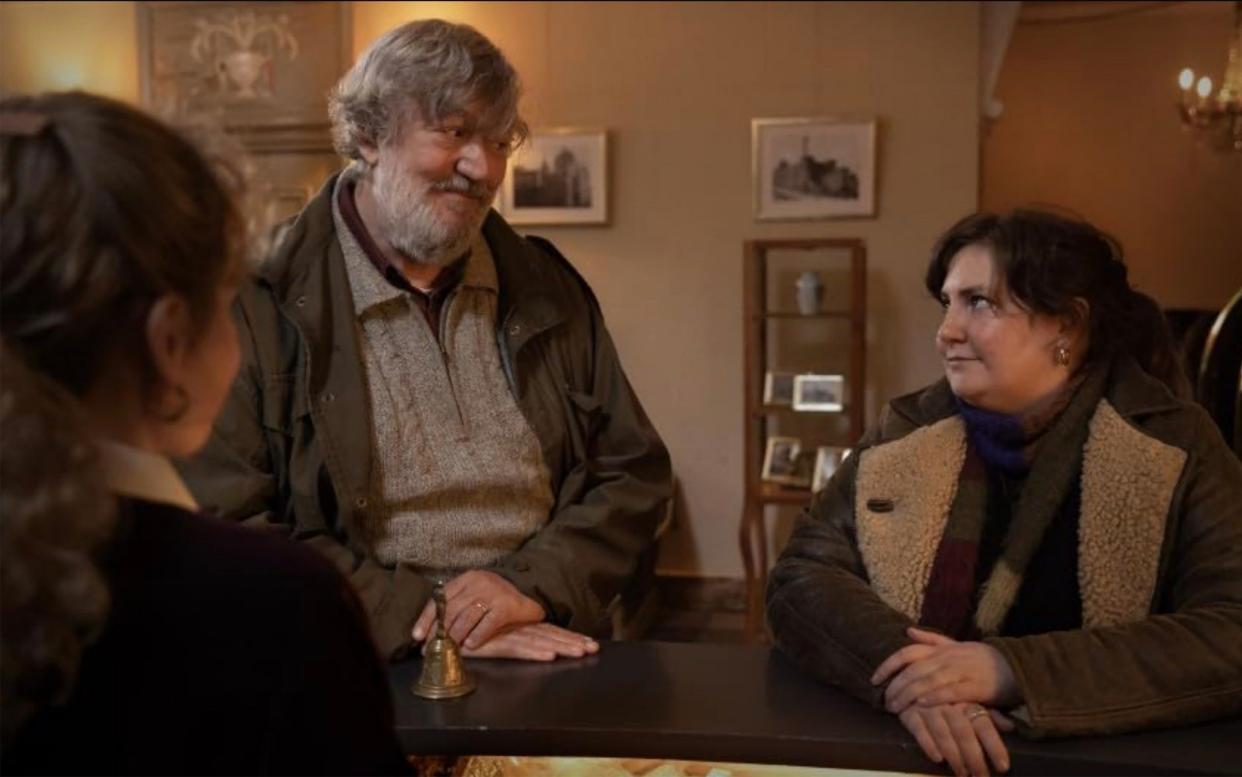Treasure: a mollifying portrait of the Holocaust's horrors

- Oops!Something went wrong.Please try again later.
Treasure, a father-daughter drama about the legacy of anti-Semitism in Poland, can hardly escape being freighted with unforeseen topicality at this year’s Berlin Film Festival. Whether it quite withstands the burden is another matter. Sombre, sluggish and usually on the right side of respectable, Julia von Heinz’s film eventually bottles its task, coming to mollifying conclusions about the 20th century’s starkest horrors.
The characters played by Lena Dunham and Stephen Fry, given fictional names in Lily Brett’s 1999 source novel Too Many Men, are nonetheless based on real people, and Brett herself was the daughter of Polish Holocaust survivors. Ruth Rothwax (Dunham) is a neurotic American journalist who travels with her bearish father Edek (Fry) to Warsaw in 1991, with the intention of seeking out his childhood home in Łódź.
Her first mistake is booking them train tickets: Edek, though hearty and good-humoured, refuses to board, and his daughter doesn’t even realise that the PTSD of being transported as a boy to Auschwitz-Birkenau, where the script will eventually lead them, lies hard across his soul.
They’ve never spoken of his ordeal, and both are grieving in tandem, without often discussing it, for the death a year ago of his wife. Ruth is also going through a break-up, and not looking after herself – she’s a binge eater with bulimia, and chronic smoker, who has obsessively packed jars of seeds to at least start her day with a semblance of health. Edek calls her “pumpkin” so often she eventually snaps, since being compared with a “fat, leaky, orange” gourd is not a term of endearment she condones.
There’s much bickering and embarrassment between these two, which prods the film to life in its better moments – though Dunham’s uneven performance gets snagged by throwaway line readings that a native English speaker (unlike von Heinz) might not have kept in the edit. Fry is more consistently good, managing his soft Polish accent with confidence, and touching quite often in his sorrow: “It once was nice…” he mutters forlornly through a taxi window, as they drive past the gloomy high-rises where his neighbourhood used to be.
It would be too harsh to call this The Zone of No Interest. You hold out hope for it: when Ruth must barter with the family in Edek’s old apartment, buying back heirlooms they refuse to admit stealing, it’s an exhausted sigh of a scene, exposing the bare-faced, mercenary denials that lingered for decades after the war, and still do.
Treasure has a chance from this point to deepen into a sobering lament, but it manufactures pointless tiffs instead, and tries to end on cute notes that mean nothing. For all Ruth’s gripes about the chirpy evasions of Holocaust tourism, she and her dad come out of Auschwitz the better, predictably, for their bonding time.
Screening at the Berlin Film Festival; a UK release date is tbc.

